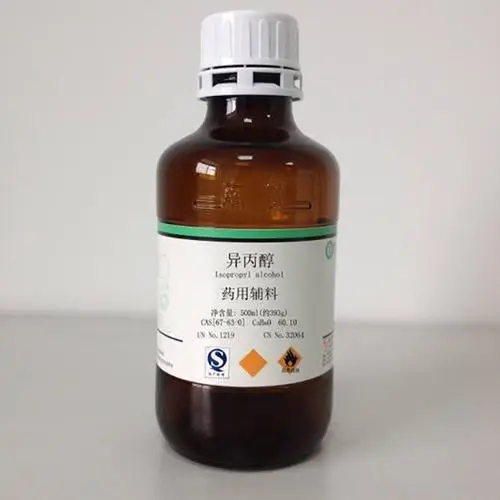Isopropanol, tseem hu ua isopropyl cawv los yog 2-propanol, yog siv dav siv tshuaj ntxuav. Nws cov koob meej yog vim nws cov khoom siv tu zoo thiab muaj ntau yam thoob plaws ntau yam kev siv. Hauv tsab xov xwm no, peb yuav tshawb txog cov txiaj ntsig ntawm isopropanol ua tus neeg saib xyuas kev tu, nws siv, thiab txhua yam kev tsis zoo.
Isopropanol yog cov kua tsis muaj xim, tsis muaj kuab lom nrog cov ntxhiab tsw tsw qab. Nws yog miscible nrog ob qho tib si dej thiab cov kuab tshuaj organic, ua rau nws muaj txiaj ntsig zoo rau ntau qhov chaw thiab cov khoom siv. Nws qhov txiaj ntsig tseem ceeb ua tus neeg saib xyuas yog nws lub peev xwm tshem tawm cov roj, grime, thiab lwm yam organic residues los ntawm ntau qhov chaw. Qhov no yog vim nws lipophilic xwm, uas tso cai rau nws yaj thiab tshem tawm cov residues.
Ib qho ntawm cov kev siv tseem ceeb ntawm isopropanol yog hauv cov tshuaj ntxuav tes thiab tshuaj tua kab mob. Nws muaj txiaj ntsig zoo tiv thaiv kab mob thiab kab mob ua rau nws muaj kev xaiv nrov rau cov chaw kho mob, cov chaw ua zaub mov, thiab lwm qhov chaw uas huv thiab huv yog qhov tseem ceeb. Isopropanol kuj pom siv nyob rau hauv lub cav degreasing cov neeg ua haujlwm, qhov twg nws muaj peev xwm yaj cov roj thiab roj ua rau nws muaj kev xaiv zoo rau kev ntxuav lub cav thiab tshuab.
Txawm li cas los xij, isopropanol tsis yog yam tsis muaj nws qhov tsis zoo. Nws cov volatility siab thiab flammability txhais tau hais tias nws yuav tsum tau siv nrog ceev faj nyob rau hauv ib puag ncig qhov chaw los yog nyob ib ncig ntawm qhov chaw ntawm ignition. Kev raug rau isopropanol ntev kuj tuaj yeem ua rau khaus tawv nqaij thiab qhov muag, yog li yuav tsum tau saib xyuas thaum siv nws. Tsis tas li ntawd, isopropanol muaj teeb meem yog tias noj, thiab nws yuav tsum tau siv nrog ceev faj nyob ib puag ncig cov menyuam yaus thiab tsiaj.
Hauv kev xaus, isopropanol yog ib qho tshuaj ntxuav tau zoo nrog ntau yam kev siv thoob plaws cov ntawv thov sib txawv. Nws muaj ntau yam thiab ua tau zoo tiv thaiv cov roj, grime, thiab cov kab mob ua rau nws muaj kev xaiv nrov rau ntau yam haujlwm tu. Txawm li cas los xij, nws qhov kev kub ntxhov siab thiab kev kub hnyiab txhais tau hais tias yuav tsum tau saib xyuas thaum siv nws, thiab nws yuav tsum tau khaws cia thiab siv kom zoo raws li cov chaw tsim khoom cov lus qhia.
Post lub sij hawm: Jan-10-2024





